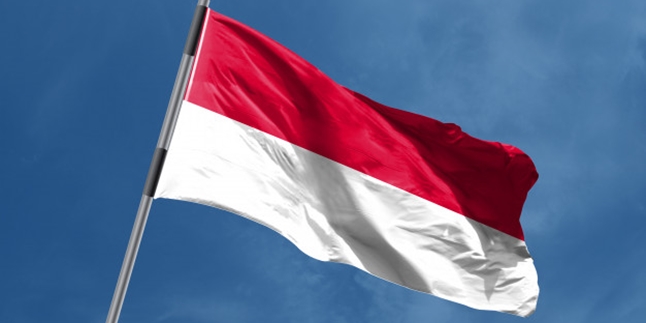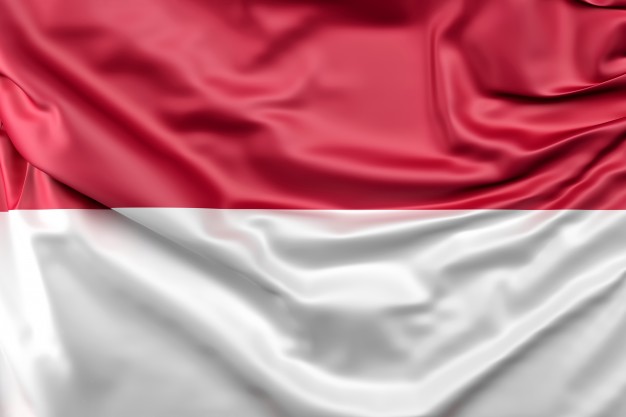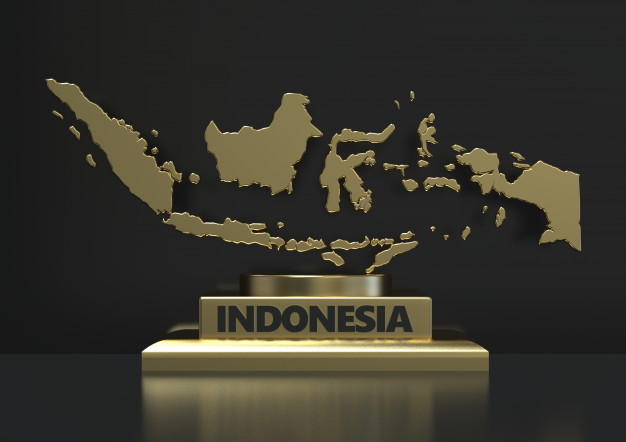Understanding Hajj: Law, Pillars, and Obligations, Muslims Must Know
Hajj is a special worship that is different from other worships. Hajj is a worship that consists of a series of procedures. Read the complete review here.

Kapanlagi.com - Pancasila is the foundation and ideological basis for the Indonesian nation. That is why every Indonesian citizen must make Pancasila the basis of their daily lives, both individually and collectively with others. Of course, this is because Pancasila functions as the foundation of the state that unites the nation in an extraordinary way.
The name Pancasila comes from the Sanskrit language and consists of two words, namely panca which means five and sila which means principles or foundations. The meaning and function of each principle in Pancasila as the foundation of the state must be understood by every Indonesian citizen. Without understanding its meaning, Pancasila may be considered merely as a slogan.
And here are 9 functions of Pancasila as the foundation of the state that you must know, as reported from various sources. Let's check it out, KLovers.

Illustration (credit: Freepik)
The function of Pancasila as the first basic principle of the state is to become a foundation. The term 'foundation' here refers to the philosophy or ideology of the state. Therefore, Pancasila in this case is used as the basis for governing the state.
In other words, Pancasila is used as the foundation for organizing the state apparatus in accordance with the content stated in the preamble of the 1945 Constitution.
The function of Pancasila as the second basic principle of the state is as the outlook of the Indonesian people's life. In this case, Pancasila serves as a guide for daily life, which is also a unity that cannot be separated from one another. It means being united in one country, namely the Unitary State of the Republic of Indonesia (NKRI).

Illustration (credit: Freepik)
The function of Pancasila as the third foundation of the state is the Indonesian national character. This function can be manifested in various forms of mental attitudes, behavior, and actions resulting from these mental attitudes.
The intended personality is the characteristic of the Indonesian people. It means a mental attitude and behavior that has its own characteristics, so it can be distinguished from other nations around the world. That is what is called the Indonesian national character.
The Indonesian soul is also one of the functions of Pancasila as the fourth foundation of the state. Pancasila is explained based on Von Savigny's theory, which means that every nation has its own soul called Volkgeist, which means the soul of the nation or the people.
Pancasila is the soul of the nation that was born together with the existence or formation of the Indonesian nation, namely during the era of the Srivijaya and Majapahit kingdoms. This is in line with what was stated by Prof. Mr. A. G. Pringgodigdo in his writing titled Pancasila.
In that writing, it is also mentioned that Pancasila itself has existed since the establishment and development of the Indonesian nation in the kingdom era. Although the term or name Pancasila was only known on June 1, 1945.

Illustration (credit: Freepik)
Then the function of Pancasila as the fifth foundation of the state is to become the source of all laws. Pancasila is the legal source for the Unitary State of the Republic of Indonesia (NKRI). This Indonesian legal source means as a way of life, awareness, and legal ideals along with moral ideals that encompass the spiritual atmosphere and character of the Indonesian nation.
The mentioned ideals are ideals regarding individual freedom, national or state independence, humanity, social justice, and national peace which are the rights and obligations of citizens. Legal or political ideals are about the nature, form, and purpose of the Indonesian state. And finally, moral ideals are laws regarding the lives of the people related to religion and society.
Then there is also the noble agreement of the Indonesian nation which becomes one of the functions of Pancasila as the foundation of the state. The noble agreement here concerns the pledge that was made when proclaiming the independence of the Indonesian nation together by the founders of the Indonesian nation. The Indonesian nation decided to become an independent State on August 17, 1945.
On August 18, 1945, the opening and body of the 1945 Constitution were ratified by the Indonesian Independence Preparation Committee (PPKI). At that time, PPKI represented the representatives of the entire Indonesian people who ratified the written noble agreement (1945 Constitution) to defend Pancasila as the foundation of the State forever.

Illustration (credit: Freepik)
The seventh function of Pancasila is as a philosophy of life that unites the nation. Indonesia is a country rich in culture and different ethnicities.
Pancasila here is a very powerful means or tool to unite the Indonesian nation so that there is no cause for the creation of a diverse and multicultural society.
Pancasila is the philosophy of life and the personality of the Indonesian nation that contains noble values and norms and is believed to be the most correct, fair, wise, and appropriate for the Indonesian nation to unite all the Indonesian people.
The eighth function of Pancasila is as the aspirations and goals of the Indonesian nation. The noble aspirations of the Indonesian nation are clearly stated in the preamble of the 1945 Constitution.
This is because the preamble of the 1945 Constitution is a medium for embodying the spirit of proclamation, which is the spirit of Pancasila that is written within it.
Therefore, Pancasila can be said as the aspirations and goals of the Indonesian nation. These noble aspirations will be achieved by the Indonesian nation as a nation or state.

Illustration (credit: Freepik)
And the final or ninth function of Pancasila is as the ideology of the Indonesian nation. Pancasila as the state ideology contains noble values that are contained within Pancasila, which become normative aspirations in the process of state administration.
In a broader sense, the understanding of Pancasila as the state ideology can be interpreted as the vision or direction of organizing national and state life in Indonesia.
With the realization of a life that upholds divinity, humanity, awareness of unity, democracy, and upholding the value of justice, including social justice.
Those are the 9 functions of Pancasila as the foundation of the state that you must know as Indonesian citizens. Hopefully, by knowing this, you will love Indonesia even more and make Pancasila the foundation of the Indonesian state.
(kpl/dhm)
Cobain For You Page (FYP) Yang kamu suka ada di sini,
lihat isinya
Hajj is a special worship that is different from other worships. Hajj is a worship that consists of a series of procedures. Read the complete review here.
Before you decide to have a pet turtle at home, it's good to know the types of turtles first so you don't buy randomly. Instead of being curious, let's directly see the following review.
What are the benefits of aloe vera for hair? Find the answers here.
The internet allows everyone to connect without distance and time limits with a wider reach. However, users need to understand the various advantages and disadvantages of the internet. Check out the following review.
Broadly speaking, human rights violations consist of several types. Therefore, on this occasion, we will discuss the types of human rights violations that you need to know. What are they? Check out the complete review below.
What are the benefits of Himalayan salt for health? Find out the answer here.
The cause of a not cold refrigerator can be due to neglected maintenance factors or may be related to the device that is already old. Check out the following review that causes the refrigerator to not be cold.
In this world, there are many types of music that you often listen to. Well, to get to know more about the types, let's take a look at the complete review below.
Kapanlagi.com had the opportunity to interview Pambo Priyojati, one of the artists at Papermoon Puppet Theatre. To some extent, Pambo talked about the adaptation process that Papermoon has gone through during this pandemic. Check out the interview results here.
This is the meaning of the first paragraph of the opening of the 1945 Constitution that you can know. Let's check it out, KLovers.
What are the causes of nosebleeds? Find the answer here.
Calcium deficiency is also known as hypocalcemia. The effects of calcium deficiency that can be felt can be seen through the following review.